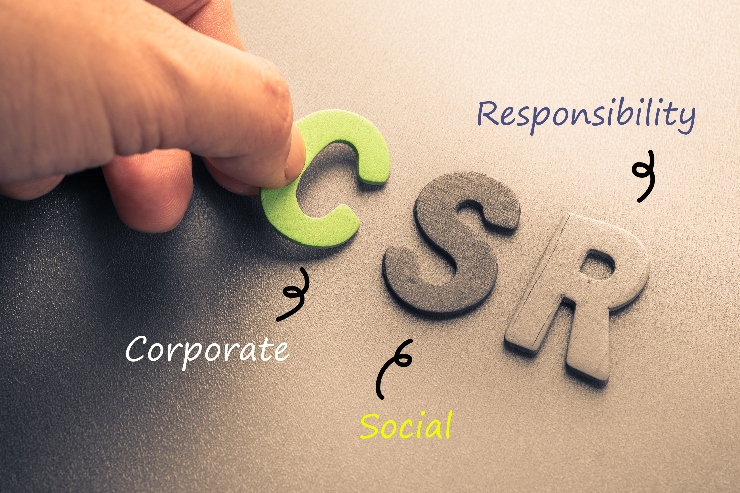Climate change is already here, but we know that its worst impacts are waiting in the wings for future generations. Unless we step up to the challenge, as individuals and as a species. Stylianos Syropoulos and Ezra Markowitz discuss how emphasising personal and collective responsibility towards future generations can not only promote climate change concern, but also potentially increase support for the hard work ahead.
As we progress through the 21st century, the true contours and effects of climate change are coming into sharper focus. Seemingly on a daily basis we are bearing witness to one climate-related disaster after another, compounding human suffering and misery now and for years to come.
But we know, too, that what we have witnessed thus far is only a prelude to what lies ahead in the face of continued inaction and foot-dragging. More frequent and more damaging impacts are highly likely in the decades to come. To put it a different way, future generations desperately need us to do something now in order to give them a chance when it’s their turn.
Luckily, there is something we can do now. In fact, there are many different things that we—people alive today—can do to avoid or at least deflect the worst impacts of climate change on future generations. And not only can we do something: we have a responsibility to do so, to take concrete steps to ensure that this bleak future is prevented. The question is, how do we encourage people to take this responsibility seriously, or to even recognise it in the first place?
A growing body of research in the behavioural and social sciences can provide actionable insights. Over the past two decades, researchers have explored a wide variety of approaches to increasing people’s recognition and acceptance of climate change as an issue of personal and collective responsibility and action. To name just a few, these include leveraging people’s motivation to leave a positive legacy, encouraging them to reflect on the sacrifices made by previous generations on their behalf, and emphasising self-transcendent and altruistic values in environmental messaging campaigns.
But do perceptions of responsibility towards the future really matter? After all, we all know there are things we should do in our lives—eat better, exercise more, be more generous—but choose not to. In fact, our recent analysis of nationally-representative U.S. survey data, published in the Journal of Environmental Psychology, found that people who feel a personal responsibility to protect future generations are significantly more likely to worry about climate change, support pro-environmental policies, and believe that climate change represents a critical threat to humanity.
In our analyses we found that this perception of responsibility was, for the most part, unrelated to news consumption, gender and racial identities, and income level. Perhaps more surprisingly, perceived responsibility was also not meaningfully related to political ideology, one of the strongest drivers of climate change public opinion in the US. As a result, our findings strongly suggest that perceptions of responsibility towards future generations are a robust mechanism that can be harnessed to promote pro-environmental action and policy support, regardless of individual and group differences previously shown to sow discord in the context of climate change.
Importantly, the effects of responsibility towards future generations could be linked to support for specific policy proposals and collective actions, including opposition to the construction of the Keystone XL pipeline, opposition to the use of fracking as a drilling method, and support for enforcing stricter limits on the amount of carbon dioxide produced by societies. Increased perceptions of responsibility also predicted increased support for funding renewable energy initiatives.
In addition, people who felt a strong responsibility to protect future generations also considered the protection of the environment as an important personal value. These people were also more likely to experience awe towards nature (a feeling of wonder over nature’s beauty), another previously identified predictor of pro-environmental engagement. Importantly, those who expressed increased perceived responsibility towards future others were also more likely to see climate change and global warming as a threat and an issue that demands more of our attention, and more likely to accept the science of climate change.
These findings are promising, as they suggest at least three key takeaways:
1) People who consider themselves responsible for protecting future generations also express endorsement of values and beliefs associated with wanting to protect the natural world. These people express more support for pro-environmental policies, they see climate change for the threat that it is, they are more likely to accept scientific findings on the subject, and they endorse values that aim to protect the environment overall. Perceived responsibility towards the future can translate into concrete action to protect the environment for future generations.
2) Perceptions of responsibility towards future generation are, for the most part, independent of many socio-demographic variables previously identified as barriers to public engagement on climate change. This suggests that future efforts focused on increasing such perceptions may be able to circumvent or overcome established obstacles to pro-environmental action.
3) Most respondents in the survey strongly endorsed a personal responsibility towards future generations. Nearly 50% considered such responsibility “extremely important” to themselves and another 38% said it was “very important.” Americans tend to disagree on many things, particularly across the political aisle, so finding such strong agreement suggests perceptions of responsibility towards the future may represent a powerful starting point for meaningful collective action on the major issues of our time.
Let’s face it—dealing with the environmental challenges we face will be tough, in no small part because to do so will require the present generation to take costly action to protect people who will be alive far in the future. We will need to leverage every resource available to encourage individuals, communities, organisations, businesses, and entire nations to do what is needed. This includes our psychological, social, and cultural resources in addition to the political, economic, and technological ones we tend to look towards first. Our work suggests that widely shared perceptions of responsibility towards future generations represent an important and powerful tool for shifting behaviour in a positive direction to confront the climate change challenge before us. Luckily, such perceptions of responsibility are already widely shared within American society. Now it’s time to put them to work.
♣♣♣
Notes:
- This blog post is based on Perceived responsibility towards future generations and environmental concern: Convergent evidence across multiple outcomes in a large, nationally representative sample, Journal of Environmental Psychology
- The post expresses the views of its author(s), not the position of LSE Business Review or the London School of Economics.
- Featured image by Anthony Quintano, under a CC-BY-2.0 licence
- When you leave a comment, you’re agreeing to our Comment Policy






What is the term called for when people say, “Climate change isn’t my responsibility because I’ll be dead by the time it gets really bad.”? i.e. ‘putting responsibility on the next generation’ (when the next generation isn’t of working age or even born yet). This is essentially what Baby Boomers and Gen X have done for the last 50 years. Please let me know.